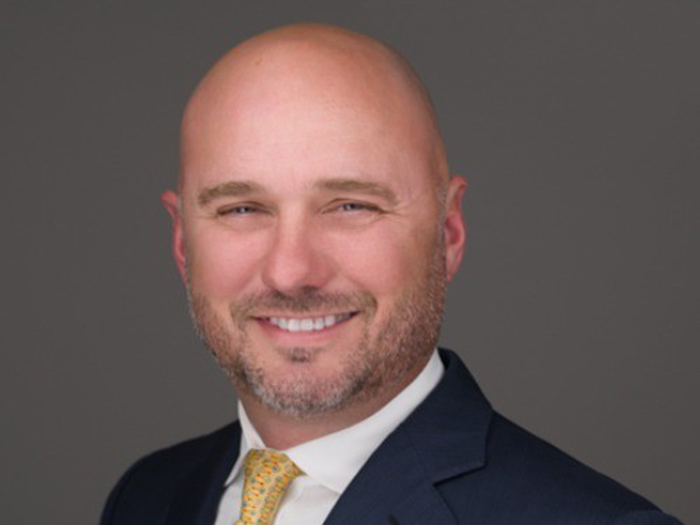Vaccine Mandate Update: How the Latest Legal Rulings Could Influence EPLI Coverage

The U.S. Supreme Court blocked an Occupational Health and Safety Administration’s (OSHA) emergency temporary standard, which would have required employers with 100 employees to either mandate vaccination against the SARS-CoV-2 virus or to test workers weekly.
In an unsigned opinion penned this month, the courts wrote that though OSHA may regulate occupational hazards, it does not have the power to enact public health measures more broadly.
“The Supreme Court ruled that OSHA could not in fact issue this mandate,” said J.D. Piro, legal and health practice leader, Aon.
“It was too much like a public health regulation, and that it was not enough like a regulation that addressed workplace hazards.”
Justices Stephen Breyer, Sonia Sotomayor and Elena Kagan wrote a dissenting opinion, arguing that the court acted without legal basis to prevent OSHA from implementing one of the most effective measures to protect workers during a “still-raging pandemic,” CNBC reported.
The mandate was in effect for only three days before the court struck it down. Now, employers who were preparing to implement vaccine or test requirements might be wondering what they should do to protect their workforce.
The Decision at a Glance
The court’s decision applies to companies with more than 100 employees outside of medical facilities that take Medicare or Medicaid payments. These firms will no longer be required by OSHA to implement vaccine or testing requirements, but President Joe Biden urged them to implement their own mandates.
“I am disappointed that the Supreme Court has chosen to block common-sense life-saving requirements for employees at large businesses that were grounded squarely in both science and the law,” Biden said in a statement.
“I call on business leaders to immediately join those who have already stepped up – including one third of Fortune 100 companies – and institute vaccination requirements to protect their workers, customers, and communities.”
On January 26, OSHA withdrew its emergency temporary standard in accordance with the court’s decision. Per CNBC, they also asked the U.S. Court of Appeals for the 6th Circuit to dismiss all cases related to the mandate, indicating the administration will not be pursuing further legal action related to the mandates at this time.
Lower courts are already using the Supreme Court’s decision to block other COVID-19 vaccine mandates the Biden administration has tried to implement.
A U.S. District judge in Texas blocked the U.S. government from disciplining employees who failed to comply with an order requiring Federal employees receive the COVID-19 vaccine, according to reporting from Reuters.
Galveston-based judge Jeffrey Brown cited the Supreme Court’s decision in his ruling.
“Can [the president], with the stroke of a pen and without the input of Congress, require millions of federal employees to undergo a medical procedure as a condition of their employment?” he wrote. “That, under the current state of the law as just recently expressed by the Supreme Court, is a bridge too far.”
Can Employers Still Mandate Vaccination?
The short answer is yes.
Years of case law have established that it is legal for private employers to mandate vaccination. The Supreme Court’s decision — which is rooted in arguments about OSHA’s authority — does not change that.
And many have already implemented their own mandates. In November, Risk & Insurance® reported that the number of employer-imposed COVID-19 vaccine mandates had doubled since August. Citigroup, Nike and others have said they will begin firing unvaccinated workers.
“There still are going to be those employers that are going to push to have their employees vaccinated,” said Alex Maza, national management liability director, Risk Strategies.
Firing or disciplining workers who refuse to be vaccinated for COVID-19 can increase a company’s employment practices liability. Workers, emboldened by the Supreme Court’s decision, may sue their employer for discrimination or wrongful termination if they’re fired over refusing to get vaccinated.
These concerns have caused some companies to roll back their vaccine mandates. Soon after the Supreme Court’s decision, Starbucks announced that it would no longer require employees to submit proof of vaccination or participate in weekly testing, the New York Times reported.
It’s worth noting, however, that courts have maintained the rights of private employers to require vaccination amidst the pandemic. And rolling back a previously initiated vaccine mandate might open you up to additional EPL exposure if you fired any employees over their vaccination status.
“They are opening themselves up to a wrongful termination suit retaliation now, by rolling it back,” said Jason Binette, EPL product manager, AmTrust Financial.
To reduce risk, employers should ensure that their vaccination policy allows for medical and religious exemptions. They should also develop a strategy for keeping any health data collected, as part of the policy, private and secure.
How Employers Can Protect Their Workforce
If you’re considering how best to keep your workforce safe, it’s important to stay abreast of state and local requirements, so that you don’t run afoul of any restrictions.
New York City, for example, requires all employers to mandate vaccination, while a number of states, including Texas, Georgia and Florida, have banned vaccine mandates. These conflicting requirements could cause difficulties for employers in multiple states.
“If you are an employer with employees in Texas and employees in New York City and employees in Florida, you’re going to have different rules,” Piro said. “That presents a lot of compliance issues.”
Allowing employees flexibility to work from home if possible can also help keep your workforce safe and reduce liability. Employers who decide to roll back their vaccine mandates may face employment practices liabilities from workers who do not wish to return to an office with unvaccinated co-workers.
“You might have the other side saying, ‘well, now I’m not going into work because you’re not requiring people to have the vaccine,” Binette said.
“I think the biggest exposure there is those employees feeling that it’s an unsafe work environment, and then they just choose not to go into work. And then the company terminates them and you create that whole retaliation exposure.”
Given the fluidity of the situation, employers may also want to consult an employment practices liability attorney so that they understand any legal risks they may face.
“Laws are changing,” Maza said. “The first thing they should make sure that they do is they should consult with their legal counsel.” &










